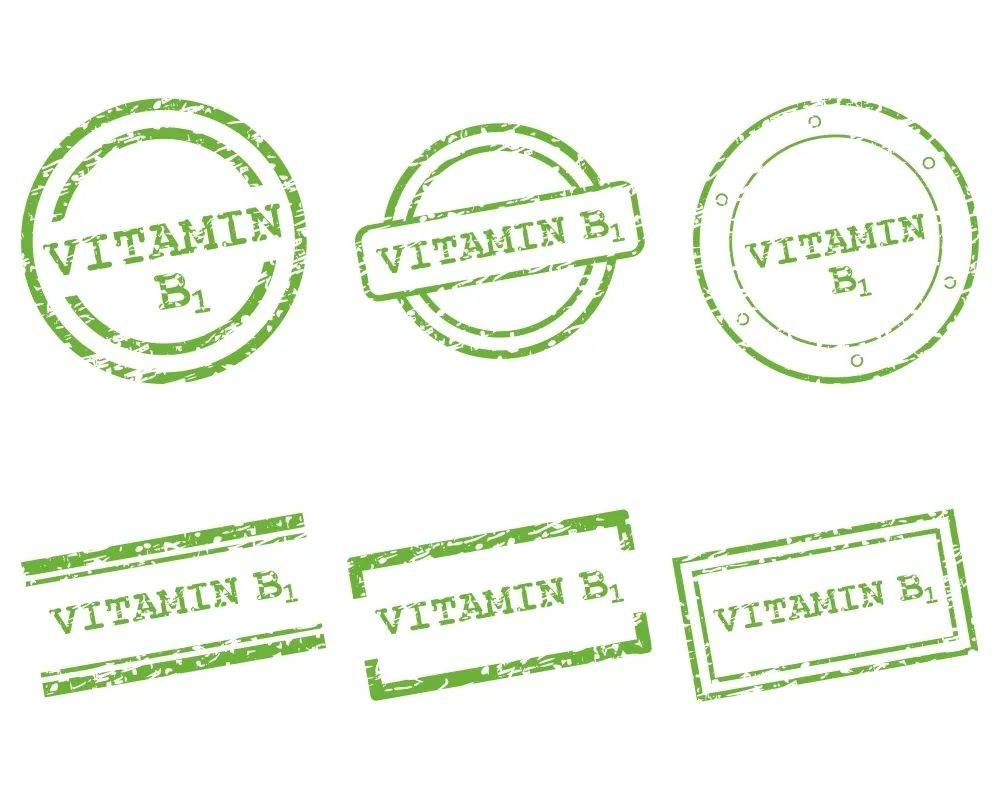If I told you that your anxiety, depression, and other emotions might be caused by a deficiency of certain B vitamins,
would you believe it?
In fact, B vitamins play a crucial role in maintaining mental health.
B vitamins influence your emotions
B vitamins act as co-factors in the synthesis and regulation of neurotransmitters such as dopamine and serotonin, which are closely related to emotional regulation.
Additionally, B vitamins serve as co-factors in cellular cycles, and a deficiency can lead to elevated homocysteine (Hcy) levels, resulting in low mood.
1. Vitamin B1
Vitamin B1 is known as the mental vitamin, as it can improve people’s mental state and maintain the normal activity of nervous tissue.
When there is a deficiency of vitamin B1, people may experience feelings of frustration, irritability, and anger, which can even lead to emotional disorders.
You can eat more brown rice, oats, whole grain bread, legumes, pork, and fish to supplement.
2. Vitamin B5
Vitamin B5, also known as pantothenic acid, is very helpful in alleviating stress and anxiety. A long-term deficiency in vitamin B5 can make a person feel extremely tense and irritable, unable to relax.
To improve the situation, you can consume more leafy greens, legumes, eggs, and meat.
3. Vitamin B6
A study published in “Human Psychopharmacology: Clinical & Experimental” showed that taking high doses of vitamin B6 can reduce feelings of anxiety and depression.
Vitamin B6 is associated with the synthesis of various neurotransmitters in the body and can influence the neurotransmitters that control depression and anxiety.
When the body lacks vitamin B6, it may lead to poor emotions such as low mood and irritability. It is recommended to obtain it from chicken, salmon, mackerel, grains, legumes, and dark leafy vegetables.
4. Vitamin B9
Vitamin B9 provides the raw materials for the synthesis of neurotransmitters like serotonin. A deficiency in vitamin B9 may lead to low mood and decreased interest.
To supplement vitamin B9, you can consume more papaya, strawberries, spinach, legumes, brown rice, oats, whole grain bread, eggs, and animal liver.
5. Vitamin B12
Vitamin B12 is a vitamin containing metal elements that can protect brain nerves. A decrease in vitamin B12 levels can lead to elevated homocysteine (Hcy) levels, and elevated Hcy may reduce the activity of nitric oxide synthase, affecting neurotransmitter activity, damaging nerve cells, and leading to sluggish responses and emotional abnormalities such as anxiety and depression.
Furthermore, studies have found that the serum vitamin B12 levels are lower in patients with depression/anxiety compared to healthy individuals.
You can correct this through your diet by consuming animal liver, beef, chicken, eggs, fish, tofu, milk, and dairy products.
There are so many kinds of B vitamins? How can you make sure to cover them all?
The simplest way to supplement B vitamins is to eat!
It is important to maintain a balanced diet, ensuring that every meal has vegetables (at least 3 to 4 different kinds daily), meat or fish at each meal, eggs each day, and not relying solely on refined rice or flour for staples. It’s beneficial to include coarse grains, tubers, and mixed beans (like oats, buckwheat, sweet potatoes, corn, red beans, black beans, etc.).
Additionally, because B vitamins work as a “team,” different types of B vitamins cooperate with each other in the body, so it’s important to ensure a sufficient intake of all types of B vitamins.
If food supply is insufficient, you may also consider supplementation.


